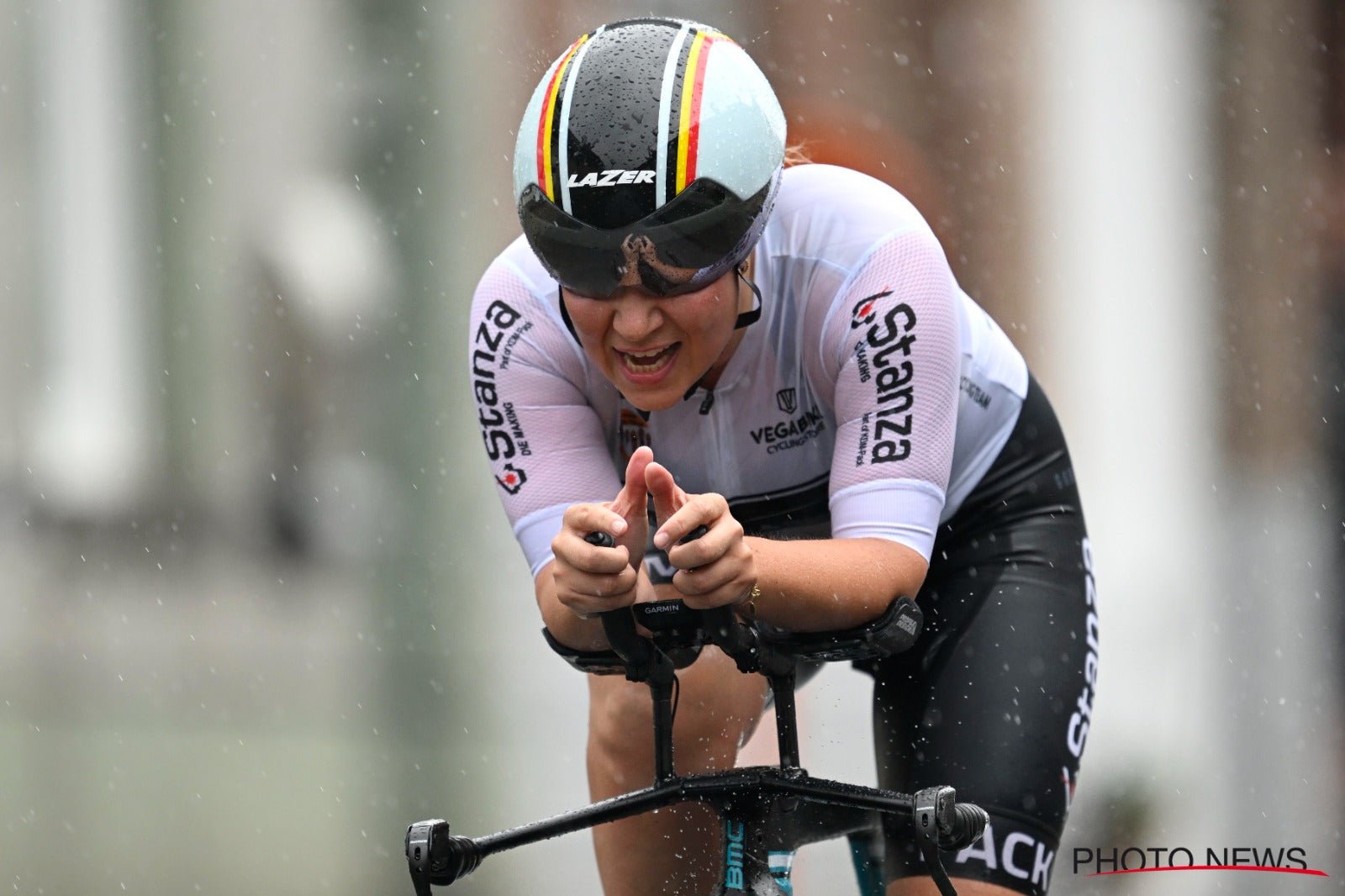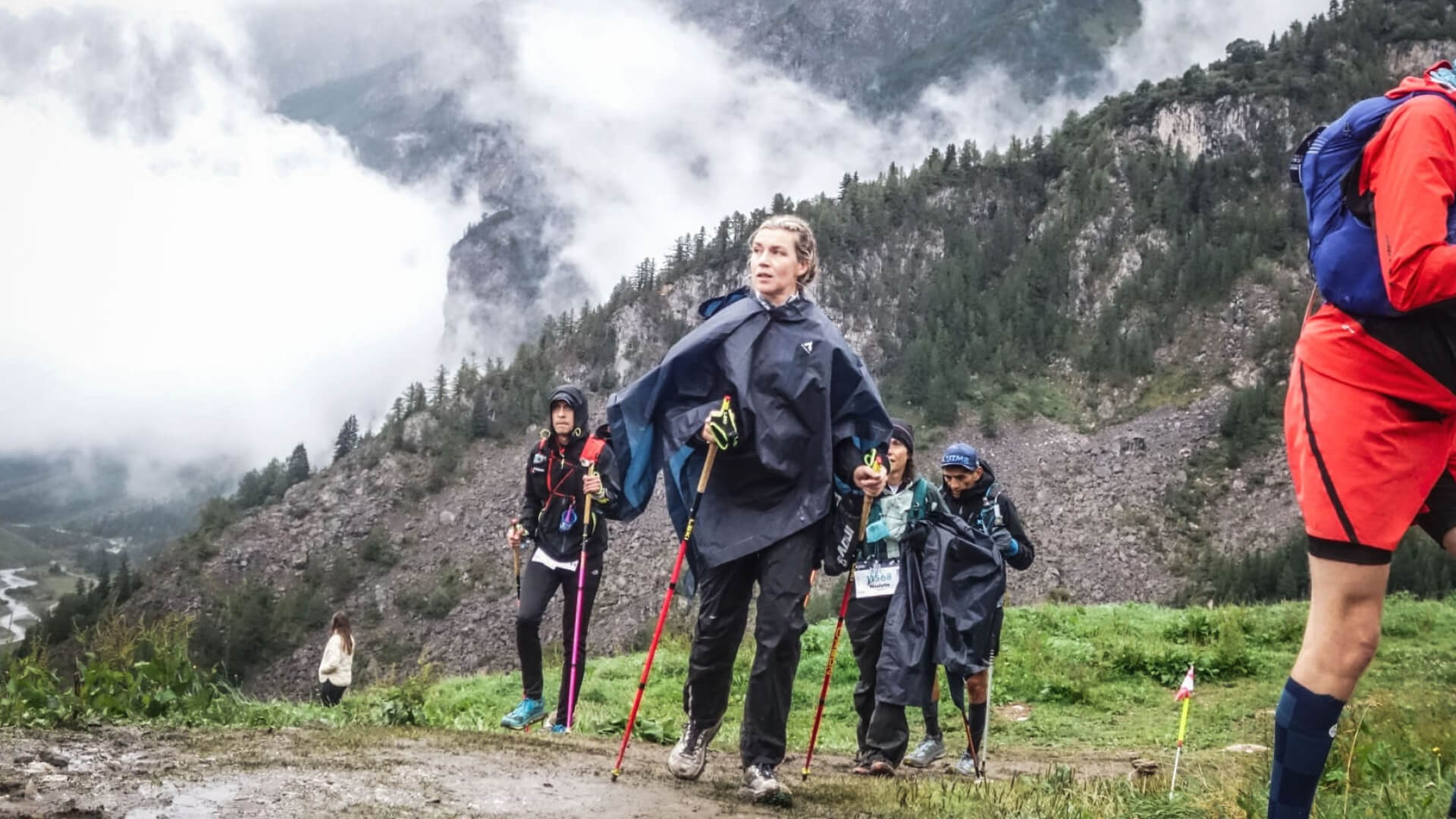At Xtract, we believe everyone has the potential to become an endurance athlete, no matter what age, fitness level, or lifestyle. We’ve built our global community around this core value, sharing the stories and lessons of athletes all over the world to help inspire and motivate you to hit your highest performance goals.
Today’s featured athlete, Leentje Van Meirhaeghe, embodies these core values, having recently completed a 298-day challenge to radically change her lifestyle to boost her athletic performance. The result? Well, for one thing, she's gone from being a relatively inexperienced cyclist to a contender at the Belgian Championship time trial, making a few national headlines along the way.
How did she do it? What lessons did she learn? What was her secret to success? Leentje told us all about her journey in our recent interview. Read on to get the full story!

From everyday to extraordinary
Q: Tell us a bit about what triggered your decision to challenge yourself in this way?
Leentje: Sure. It all started last year when I quit my job. I was looking for a complete change and decided to venture into sports marketing independently. During this transitional phase, I was really living it up, partying and having fun. But I'd often wake up feeling unhealthy due to the irregular hours, alcohol, and overall lack of structure. I realised then that I needed to make a big change.
The idea of challenging myself athletically sparked when I attended the Belgian Championship Time Trial to support my nephew and his mate, Victor. The thought of participating was intimidating at first because you need to qualify to compete. But the idea lingered in my mind for months.
However, after discussing it with my nephew (Jef Van Meirhaeghe), who really encouraged me, I said ok, let's do it.
Q: Can you describe the mindset changes you had to undergo?
Leentje: For me, the key to maintaining discipline and motivation throughout this challenge was having a clear “why”. I wanted to regain control over my life, to have more structure, and to make decisions with a clear mind. This challenge was my way of achieving that. Knowing why I was doing it made all the difference. It made it easier to wake up every morning, to train, and to have healthier habits.
Q: How would you compare your life before and after this self-imposed challenge? In what ways have you changed the most?
Leentje: The physical changes are quite significant. I've lost around 14-15 kilos, and while I was happy with my body before, I now feel much healthier and stronger. It's not just about the weight loss but also the increase in muscle mass and overall fitness. I've gained a deeper understanding of my body, being able to feel my heart rate and have better control over it. That sense of control and being in tune with my body is one of the most significant changes for me.
I've also learned to appreciate the little things in life. Family dinners, moments with friends and their children, and even quality 'me time' have become more meaningful. When you're juggling work and intense training, you start to value and cherish those moments.

Credits: Nieuwsblad.be
Training for the BC Time Trial
Q: What was the first step you took when you decided to change your lifestyle and dive into professional cycling?
Leentje: One of the first things I did was find a trainer. I had tried following generic internet programs before, but this time I knew I needed something more tailored.
Having a trainer made a world of difference. Every week, we would review my results and make adjustments based on my heart rate, speed, and weight. It let me focus on areas where I could improve and make consistent progress. My trainer also conducted exercise tests throughout the challenge to assess my fitness level and track my development.
I highly recommend working with a trainer or coach. It really contributed to my improvement and overall success.
Q: How did you maintain your motivation and discipline throughout this journey?
Leentje: Maintaining motivation and discipline was a challenge at times. Especially on mornings when I had to wake up early, like 5 a.m., to fuel up before intense training sessions. Of course, there were moments when I didn't feel like doing it, but I had to switch my mindset.
I knew why I was on this journey and what I wanted to achieve. Even when I didn't feel like it, I knew that once I started, I would feel great afterwards. So I would tell myself, “Put on your workout clothes, and just go.”
I also leaned on my friends and family for support during tough times. Their understanding and support made a huge difference in keeping me motivated.
Q: How did you adapt your nutrition to support your new athletic lifestyle?
Leentje: One of the first things I cut out was alcohol. That made it easier to lose weight and train in the morning with more energy and no hangover. I also became more mindful of my sugar intake, although I still allowed myself some treats, especially during lighter training weeks. I noticed I was eating more biscuits and sweets than I did before. But it didn’t feel bad because I was training so much.
I also met with a nutritionist at the football club where I work, who provided me with a list of recommended foods for different training scenarios. I prioritised having a nutritious breakfast with yoghurt, granola, and fruit and adjusted the ingredients based on availability.
Another thing I did was meal prepping for the week. Like, on Sunday evenings, I would sit down and figure out what I needed for the upcoming week. Then, on Monday evenings, I would hit the store and do a big grocery haul to get everything I needed. It was a game-changer because it gave me one less thing to worry about during the week and helped me keep my eating habits on point.
Q. Were there any specific supplements that played a significant role in your training and transformation? Pre-workout, during, post-workout?
Leentje: Absolutely. For the pre-workout, it depends. Before heavy training, I like to have a “Decathlon cake” for carbs. You just add water, put it in the microwave, and it's ready to go. During less intensive training sessions, I didn't eat much before my workouts.
If the session is six hours or longer, I’ll also kick things off with a caffeine shot or with XTRACT.
During training, I make sure my body has enough fuel to carry me through the entire session. For instance, during marathon training or the actual marathon, I’ll take up to three gels per hour. It’s a high amount, but it keeps my energy levels stable. This also helps me curb cravings for fast food and unhealthy snacks post-workout.
Post-workout, a vanilla protein shake with soy milk is my go-to, no matter the length of the workout.
Q: What was your experience with XTRACT like?
Leentje: For me, it makes a difference for intense training sessions. During a period when I was training six or seven hours a day for a few weeks, I decided to combine XTRACT with my caffeine shots.
Normally, I'd have three caffeine shots during training. But with XTRACT, I just took one, and I felt way healthier. Somehow, XTRACT seemed to provide the same, or maybe even a better, energy boost than the caffeine shot, but it felt different. More natural and healthy, which is in line with my reasons for taking on this training challenge in the first place. I was a bit bummed out when I ran out of my Ginger-Lemon shots.
Overcoming challenges
Q: Can you talk about any mistakes you made early on in your training
Leentje: Like I mentioned earlier, keeping your energy up during workouts was a big one. I truly believe that changing that habit (taking more gels during the workout) played a massive role in my improvement. And seeing that progress is so motivating; it makes you want to push even harder.
Another thing was organisation, or rather, the lack of it, especially at the start. I didn't take the time to sit down and really plan out my workouts, which, looking back, wasn't the best approach.
I'd definitely advise other athletes to plan out when and where they’ll train, maybe even prep their gear the night before. It can make a world of difference. For example, if you're training for a triathlon - you've got running, cycling, and swimming gear to organise. Having a bag ready to go can save you from a morning scramble, and trust me, a stress-free start is the perfect kick-off to any training day.
Q: What was the most challenging part of your journey, and how did you overcome it?
Leentje: Training in winter. Imagine cycling in constant rain, cold, or even freezing weather. I remember this one time, I was at my parent’s place. It was the second of January, the thermometer was showing minus four, and there I was, training outside because there was no home trainer at their place. It made me extra grateful to have one at home.
Having a home trainer makes it easier when you're on a tight training schedule to jump out of bed, throw on your workout gear and hop straight onto the bike. All while watching some Netflix or getting some work done. If I had to share some tips, I'd say invest in a home trainer. Yes, it can be pricey, but it's worth it for the flexibility it gives your training.
Finally, I’d say don't skimp on good workout clothes. Comfort and functionality can really enhance your training experience.

Credits: Sporza.be
The lessons learned
Q: Throughout this transformative journey, what are the most crucial lessons you've learned?
Leentje: I think the biggest thing is the immense respect I have for professional athletes. I always admired them, but now, my respect for them is off the charts - they're gods!
Choosing to engage in a sport because you love it is one thing, but it's a whole other level of dedication when you're constantly pushing yourself to improve. And for those who juggle this with a full-time job, well, it just blows my mind. I struggle to comprehend how organisations, federations, or governments struggle to find sufficient sponsorship or funding to support them more.
Take women's cycling or field hockey, for instance. I know that more than half of those athletes have to work a regular job just to pay the bills. This was a reality I hadn't fully grasped. I always had the comfort of knowing that my intense training schedule would end in June and that I could then readjust my work life. But for these athletes, it's a constant grind, year in, year out.
It's a tough path they've chosen, and they have my utmost respect.
Q: If you could name one very best thing about taking this challenge, what would it be?
Leentje: My health, without a doubt. I feel so much more alive and comfortable in my own body and mind.
Q: Now that you have achieved such a remarkable transformation, what are your future goals?
Leentje: I've got plans to compete at the regional time trial championship this July. And who knows, maybe I'll ask my followers on social media what they think I should do next. I'm open to suggestions.
Q: What advice would you give to aspiring athletes who wish to make a similar lifestyle change?
Leentje: Just remember, if others can do it, so can you. Know why you want to do it, and then just go for it.
Key secrets to success
-
Finding a clear "why" and understanding the motivation behind the lifestyle change is crucial for maintaining discipline and overcoming challenges.
-
Personalised training programs tailored to individual needs are instrumental in achieving rapid progress and success.
-
Having a supportive network of friends and family can provide the necessary encouragement and help during tough moments.
-
Cutting out alcohol and being mindful of sugar intake were significant dietary changes Leentje made to support her athletic lifestyle.
-
Meal planning and preparation helped Leentje stay organised and maintain healthy eating habits.
-
Incorporating supplements like XTRACT and utilising caffeine shots helped provide energy boosts during training sessions.
-
Training in winter weather presented challenges, but having a home trainer and investing in good workout clothes can enhance the training experience.
-
Leentje gained a newfound respect for professional athletes and their dedication to their sport while juggling work commitments.
-
The most rewarding aspect of the challenge for Leentje was improved health and a greater sense of comfort in her own body.





